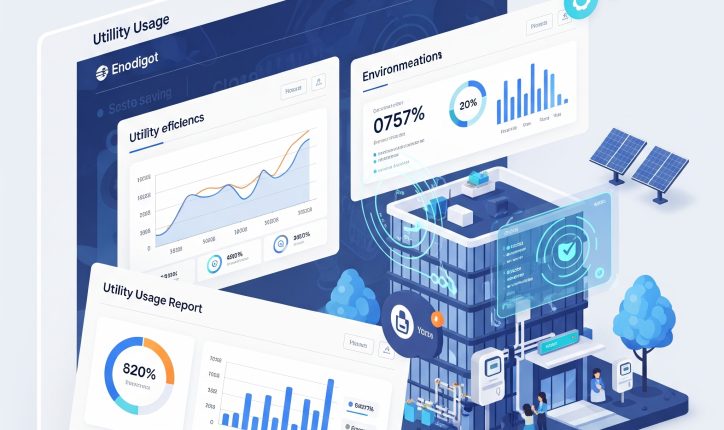Need Assistance? Call one of our experts today on: 0844 980 2218 - Email: info@hflbuildingsolutions.co.uk
Need Assistance? Call one of our experts today on: 0844 980 2218 - Email: info@hflbuildingsolutions.co.uk
Home/The Strategic Power of Utility...

113 Views
0 Comments
13 June 2025
In an era defined by rising operational costs and increasing environmental consciousness, businesses are constantly seeking smarter ways to manage their resources. Amongst the most significant expenditures for any commercial property are utilities – electricity, gas, and water. Simply paying the bills, however, is no longer enough. To truly gain control, drive efficiencies, and contribute to sustainability, utility usage reporting has become an indispensable tool for modern organisations.
Beyond just a number on an invoice, detailed utility data offers a goldmine of insights. By diligently tracking, analysing, and understanding consumption patterns, businesses can transform their approach to resource management, moving from reactive bill payment to proactive, data-driven optimisation.
Utility usage reporting involves the systematic collection, analysis, and presentation of data related to a facility’s consumption of various utilities. This includes, but is not limited to:
Unlike simply receiving a monthly bill, robust utility usage reporting goes deeper. It involves continuous monitoring, often facilitated by smart meters and advanced metering infrastructure (AMI), to provide granular, real-time, or near real-time data. This rich dataset allows for comparison over different periods, identification of trends, and pinpointing areas of unusual consumption. It’s the process of transforming raw utility data into actionable intelligence.
Implementing effective utility usage reporting delivers a wide array of strategic advantages that directly impact a business’s bottom line and its environmental footprint.
The most immediate and tangible benefit is the potential for substantial cost reduction. By having a clear, accurate picture of where and when utilities are consumed, businesses can:
In today’s corporate world, sustainability reporting and reducing environmental impact are paramount. Utility usage reporting is foundational to these efforts:
Data is king, and utility usage reporting provides the necessary data to make informed choices:
Accurate financial forecasting is essential for any business. Detailed utility reports contribute by:
Many industries face increasing pressure to comply with energy regulations and meet Environmental, Social, and Governance (ESG) criteria. Energy consumption reporting facilitates:
Sudden spikes or unusual patterns in utility bill analysis can indicate problems that require immediate attention:
To be truly effective, utility usage reporting typically relies on:
While the benefits are clear, setting up and maintaining a comprehensive utility management system can be complex. Partnering with a specialist provider ensures that you have the right technology, expertise, and ongoing support to maximise the value derived from your utility data. They can handle everything from meter installation to data analysis and strategic recommendations.
Utility usage reporting is no longer a luxury; it’s a strategic necessity for any forward-thinking business. By embracing a data-driven approach to your energy consumption reporting, you gain unparalleled control over costs, significantly boost your sustainability efforts, and empower smarter decision-making across your organisation.
Ready to unlock the full potential of your utility data and drive your business towards greater efficiency and environmental responsibility? Contact us today to discuss how our utility management solutions can benefit your operations.
Freeman House, Orbital 24, Oldham Street, Denton, Manchester M34 3SU